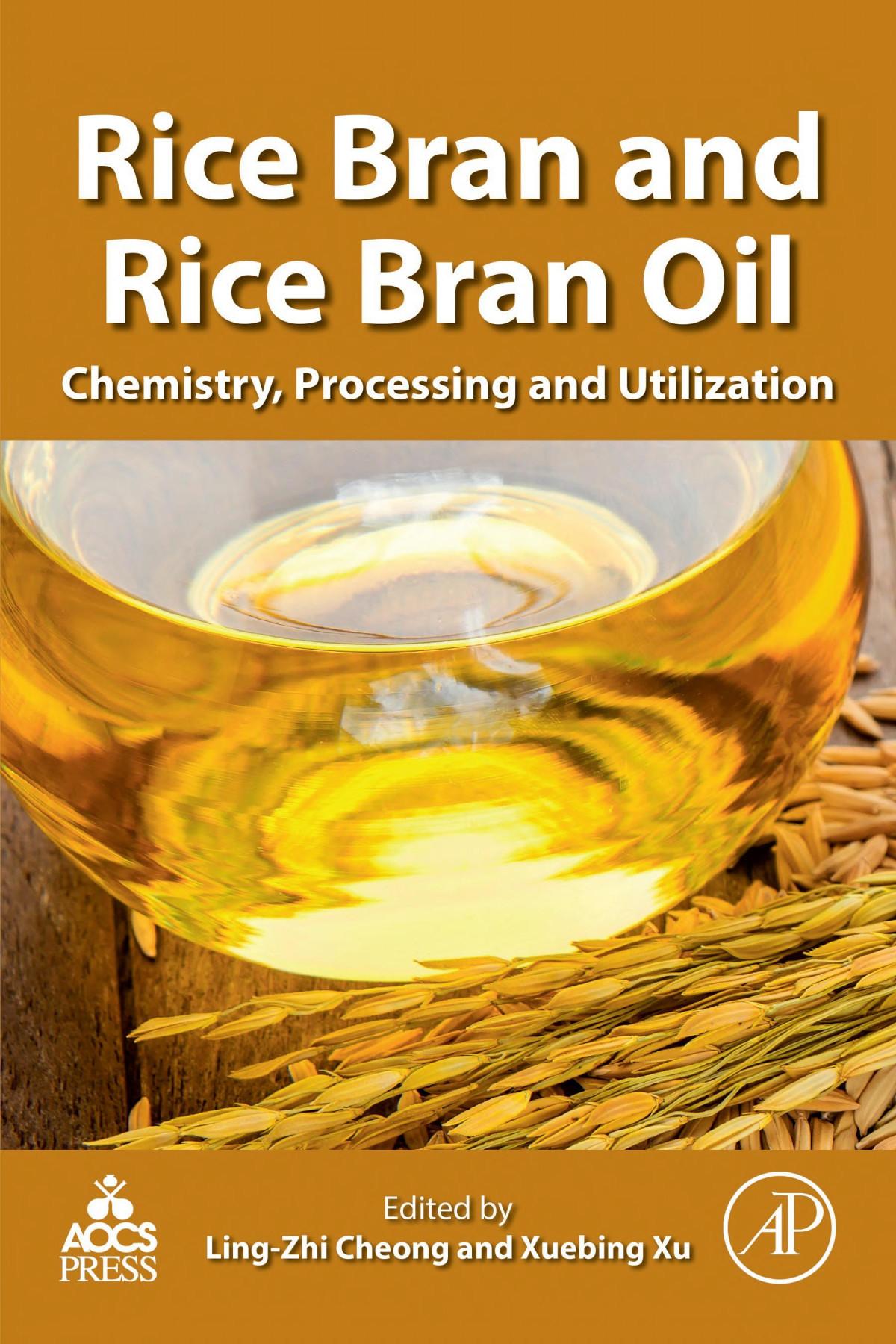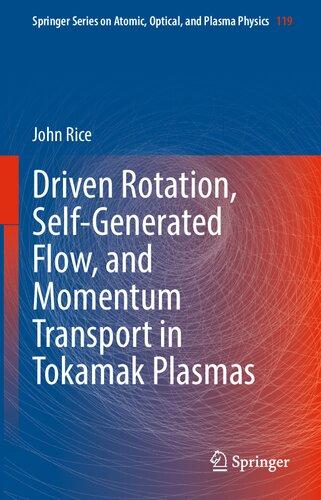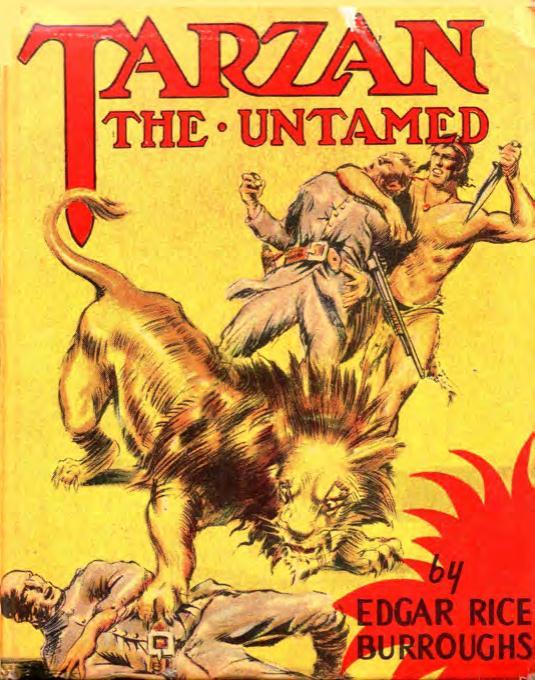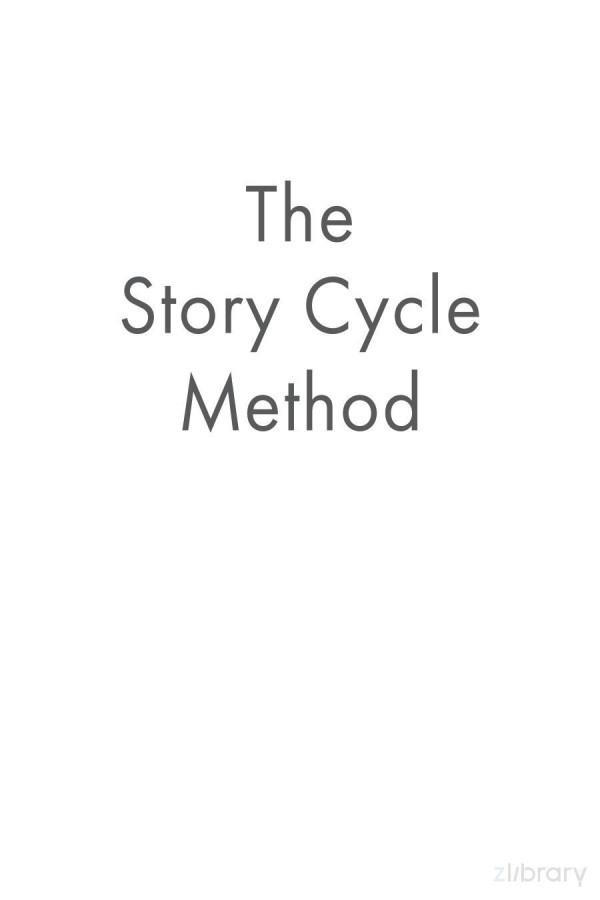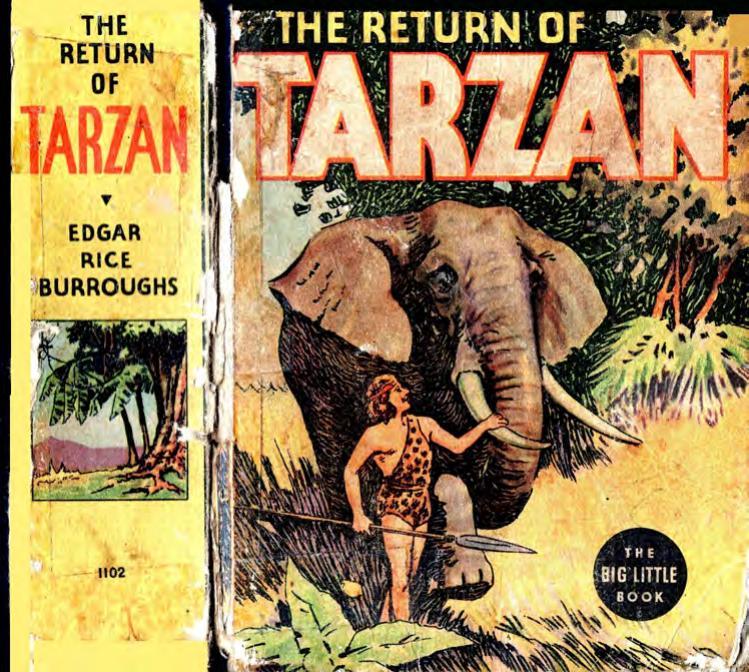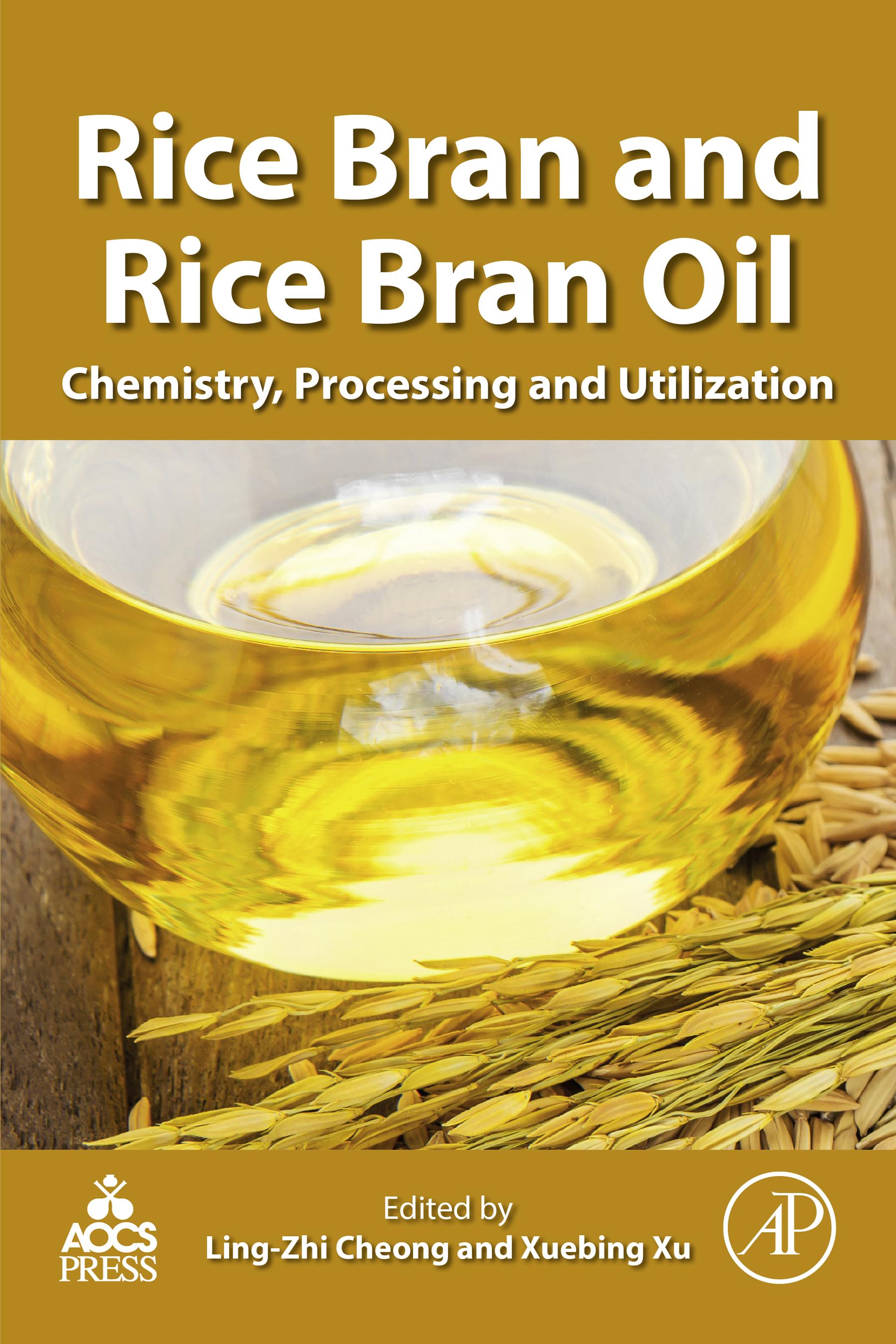RICEBRANAND RICEBRANOIL Chemistry,Processing
andUtilization
Editedby
LING-ZHICHEONG
XUEBINGXU
AcademicPressandAOCSPress
AcademicPressisanimprintofElsevier 125LondonWall,LondonEC2Y5AS,UnitedKingdom 525BStreet,Suite1650,SanDiego,CA92101,UnitedStates 50HampshireStreet,5thFloor,Cambridge,MA02139,UnitedStates TheBoulevard,LangfordLane,Kidlington,OxfordOX51GB,UnitedKingdom
Copyright © 2019AOCSPress.PublishedbyElsevierInc.Allrightsreserved.
PublishedincooperationwithAmericanOilChemists’Society www.aocs.org Director,ContentDevelopment: JanetBrown
Nopartofthispublicationmaybereproducedortransmittedinanyformorbyanymeans, electronicormechanical,includingphotocopying,recording,oranyinformationstorageand retrievalsystem,withoutpermissioninwritingfromthepublisher.Detailsonhowtoseek permission,furtherinformationaboutthePublisher’spermissionspoliciesandourarrangements withorganizationssuchastheCopyrightClearanceCenterandtheCopyrightLicensingAgency, canbefoundatourwebsite: www.elsevier.com/permissions
Thisbookandtheindividualcontributionscontainedinitareprotectedundercopyrightbythe Publisher(otherthanasmaybenotedherein).
Notices
Knowledgeandbestpracticeinthisfieldareconstantlychanging.Asnewresearchandexperience broadenourunderstanding,changesinresearchmethods,professionalpractices,ormedical treatmentmaybecomenecessary.
Practitionersandresearchersmustalwaysrelyontheirownexperienceandknowledgein evaluatingandusinganyinformation,methods,compounds,orexperimentsdescribedherein. Inusingsuchinformationormethodstheyshouldbemindfuloftheirownsafetyandthesafety ofothers,includingpartiesforwhomtheyhaveaprofessionalresponsibility.
Tothefullestextentofthelaw,neitherthePublishernortheauthors,contributors,oreditors, assumeanyliabilityforanyinjuryand/ordamagetopersonsorpropertyasamatterofproducts liability,negligenceorotherwise,orfromanyuseoroperationofanymethods,products, instructions,orideascontainedinthematerialherein.
LibraryofCongressCataloging-in-PublicationData
AcatalogrecordforthisbookisavailablefromtheLibraryofCongress
BritishLibraryCataloguing-in-PublicationData
AcataloguerecordforthisbookisavailablefromtheBritishLibrary
ISBN978-0-12-812828-2
ForinformationonallAcademicPresspublicationsvisit ourwebsiteat https://www.elsevier.com/books-and-journals
Publisher: AndreGerhardWolff
AcquisitionEditor: NancyMaragioglio
EditorialProjectManager: SusanIkeda
ProjectManager: NileshKumarShah
TypesetbySPiGlobal,India
Preface xi
1.ChemistryofRiceBranOil1
NurhanTurgutDunford
1. Introduction1
2. Oilcontentofricebran1
3. Fattyacidcompositionofricebranoil2
4. Freefattyacidcontentofricebranoilandvariousneutralization approaches3
5. Ricebranoiloxidation11
6. Otherchemicalreactionswithricebranoil14
7. Conclusions15 References15
2.NutritionalStudiesofRiceBranOil19
Oi-MingLai,J € orgJ.Jacoby,Wai-FunLeong,Wee-TingLai
1. Introduction19
2. Oryzanol29
3. Phytosterolsandsqualene37
4. Waxesandpolicosanol39
5. VitaminE41
6. Concludingremarks46 References46
3.ProcessingTechnologyofRiceBranOil55 PradoshPrasadChakrabarti,RamChandraReddyJala
1. Introduction55
2. Stabilizationofricebran57
3. Preferredprocessforrefiningofricebranoil59
4. Problemswithphysicalrefining62
5. Qualityrequirementofoilsmeantforphysicalrefining62
6. Pretreatment thekeyfactor63
7. Degummingofricebranoil64
8. Commonlyuseddegummingtechniques66
9. Bleachingofricebranoil71
10. Dewaxingofricebranoil78
11. Winterizationofricebranoil81
12. Deodorization/deacidificationofricebranoil82
13. Valueadditiontoricebranoilrefiningbyproducts87
14. Conclusion88 References89 FurtherReading94
4.BioprocessingTechnologyofRiceBranOil97 YuanrongJiang
1. Introduction97
2. Enzymaticstabilizingofricebran97
3. Enzymaticdegummingofricebranoil98
4. Enzymaticdeacidificationofricebranoil108
5. Enzymaticinteresterificationofricebranoil115
6. Chaptersummary119 References120 FurtherReading123
5.MicronutrientsinRiceBranOil125 RiantongSinganusong,UmarGarba
1. Introduction125
2. Gamma-oryzanol127
3. Tocopherols132
4. Tocotrienols136
5. Phytosterol139
6. Squalene144
7. Phospholipids148
8. Conclusion152 References152 FurtherReading158
6.ApplicationsofRiceBranOil159 YongWang
1. Introduction159
2. Foodapplications159
3. Functionalfoodapplications162
4. Pharmaceuticalapplications163
5. Cosmeticapplications165
6. Industrialapplications166
7. Conclusion166 References167
7.AnalyticalAspectsofRiceBranOil169 DongpingHe,LingyiLiu
1. Compositionalanalysis169
2. QualityAnalysis173
3. Challengesconcerningtheanalysisofricebranoil178 References179
8.DevelopmentofRiceBranFunctionalFoodandEvaluation ofItsHealthfulProperties183 Md.Alauddin,SadiaRahman,JahidulIslam,HitoshiShirakawa, MichioKomai,MdZakirHossenHowlader
1. Introduction183
2. Basiccompositionofricebran186
3. Fermentedricebranpreparationandfunctionalimprovement189
4. RiceBran-basedfunctionalfood,adrugalternative192
5. Fermentedricebranmodulatesmultifactorialmetabolicdisease andItssensor(glucose,insulin,andtranscriptionfactors)196
6. Conclusion199 References201 FurtherReading205
9.RiceHusk,RiceHuskAshandTheirApplications207 YanpingZou,TiankuiYang
1. Introduction207
2. Characterizationsofricehusk/ricehuskash208
3. Productionofsilicafromricehuskash218
4. Productionofsilicaaerogelfromricehuskash226
5. Applicationofricehusk/ricehuskashasbioadsorbent231
6. Conclusion241 References242
10.NutritionalIngredientsandActiveCompositions ofDefattedRiceBran247
XuhuiZhuang,TieYin,WeiHan,XiaolinZhang
1. Introduction247
2. Nutritionalingredientsandtheircontentsinricebran anddefattedricebran248
3. Starchinriceandricebran249
4. Nonstarchpolysaccharides254
5. RiceBranProteins259
6. Otheractivephytochemicalsindefattedricebran260
7. TheDevelopmentprospectofdefattedricebran263 References264
11.RiceBranProtein:Extraction,NutraceuticalProperties, andPotentialApplications271
YanZheng,NisiGao,JuanWu,BaoruYin
1. Introduction271
2. Nutraceuticalpropertiesandhealthbenefitsofricebranprotein272
3. Extractionofricebranprotein275
4. Ricebranproteinapplication283
5. Closingremarks288 References288
PEACE PROPOSALS AND PROGRAMS
7. HOLLAND
NEDERLANDSCHE ANTI-OORLOG RAAD
The Hague
Founded on the 8th of October, 1914
The Council is of opinion that the following principles are indispensable to attain a lasting peace:
Dutch Anti-War Council.
1. Concert of the Powers instead of mutually opposed Alliances;
2. Limitation of armaments by international regulations;
3. Influence of the different Parliaments on the peace-treaty;
4. Avoidance of the dangers engendered by annexation or by transfer of territory against the will of the population;
5. Removal of the obstructions to commerce or at least of difference in treatment of the various nations in colonies and settlements, according to international regulations.
6. New endeavors to promote compulsory arbitration and compulsory inquiry of international differences.
DIFFERENTIAL NEUTRALITY FOR AMERICA
One would prefer to think otherwise, but the truth probably is that the future peace of the world, and the nature of international organization depends a good deal less upon definitely conceived plans like that of the League to Enforce Peace (however admirable and desirable it may be to promote definite projects of that kind) than upon the nature of the foreign policy which each nation individually pursues. Disagreements between nations arise generally in situations in which both sides honestly believe themselves to be in the right. Most nations are honestly in favor of peace in general, and would go to The Hague and assist in drawing up plans to maintain it; yet each may be persisting in a line of conduct which, in its own view entirely defensive and defensible, appears to another unwarrantably aggressive. And when that is the case paper arrangements for avoiding conflict are apt to break down.
So the most practical question for each of us for some time is likely to be this: what will be the effect of our own country’s conduct in its relations with other countries, upon the future peace and international condition of the world? Or, to put the question in another form: What can our country do, irrespective of what others may do, to contribute to a more orderly international condition, saner world politics?
America is of course concerned in the present war whether she will or no. She may, by her material resources in supplies, ammunition, credit, be largely influencing its decision. As part of the problem of protecting her own rights, incidentally menaced by the operations of the war, she has taken very solemnly a certain position in international affairs. She has declared, for instance, that she stands irrevocably for the protection of innocent non-combatant life at sea in war time. She would undoubtedly stand as decisively for certain lesser rights of trade and free communication on the seas as well (in the past she has gone to war in their defense) but for the
fact that doing so against one belligerent would aid the cause of the other guilty of still greater offenses.
And if we look beneath diplomatically expressed claims into unofficial, but unmistakably expressed public opinion, we find America standing strongly for certain other rules of life between nations—the right of each nation to national existence for instance— like those violated in the invasion of Belgium.
Is America really serious in the stand thus made? Or is she going to avow by her future policy, if not in words, that she will take no real risk nor assume any real obligation in support of the principles she has been maintaining diplomatically and by her clearly expressed public opinion. Is she going to submit lamely, to the indignities and violation of right involved in the massacre of her innocent noncombatant citizens at sea?
I put the question in that form because it is generally a rhetorical prelude to the demand for warlike action. And yet the American who is moved by his country’s dignity and right to have thought this thing out, as well as to have become angry about it, knows that warlike action is perhaps the very last thing—though it may be the last thing which the situation calls for; and that warlike action alone would be a betrayal of his country’s highest interests in the matter. If America is really serious she must prepare herself—in public opinion, in political education—for action of a different kind: for the abandonment of certain traditions about freedom from entangling alliances, for the assumption of risks and obligations which to most Americans is to ask a great deal more than the mere act of going to war.
Why will war of itself not suffice?
Suppose this country goes to war, over, for instance, the submarine issue; and is finally entirely successful, so far as defeating Germany is concerned. How do we then know that America has got what she has been fighting for? Our demands at the end of the war will be that American rights at sea shall be respected; that, most
particularly, non-combatants shall not be drowned by attacks on merchantmen. Very good. Germany gives us her promise. She has given it before. How do we know that it will be kept—either by her or any other nation that in a future war may find a ruthless use of the submarine the only weapon left to it against a power commanding the sea? Can we hope that if we show now that we are ready to fight “at the drop of the hat,” in future a hard-pressed belligerent will be overawed by the great American navy? Then why is not the belligerent we now propose to deal with held in check by the combined navies of Great Britain, France, Russia, Italy, Japan and Portugal? Again, when we have that promise at the end of our victorious war how do we know that it will be kept, that we shall have got what we have been fighting for?
And what of the American case against the Allies? Is America now to surrender rights upon which she has insisted ever since she became an independent State and which she once fought a war and twice very nearly came to war to defend? Is America, in fighting Germany to make the British Order in Council the basis of future sea law, so that when say Japan goes to war with some other nation America will have to submit to Japanese control of her trade and communication with neutral States—even to mail and banking correspondence—as she now submits to British control?
It is quite obvious that American claims have this difference from those of the Allies: they, in so far as they are territorial can at the peace be satisfied on the spot. America’s cannot. Hers depend absolutely upon the establishment, after the war, of a different and better international order; upon agreement as to what shall constitute international law and some method of ensuring its observance.
Now has it not become evident that the present German-American situation contains the elements of a great opportunity for America: not only of putting an end to a situation humiliating for herself but of creating a new state of world affairs out of which might grow—
would almost inevitably grow—the restoration of general peace on conditions that civilization could accept?
But that result is certainly conditional on one thing: that American diplomacy is great enough to make precedent, to be dangerously honest to the point of dropping diplomatic make-believe and breaking with diplomatic usage.
Germany says in effect that she will make military sacrifices for the purpose of respecting American neutral right, if America on her side will reciprocally fulfil neutral obligation by insisting on the military sacrifice from bothbelligerents; so that American rights are not made a means of handicapping one party as against the other; are not invoked in what Germany regards as so one-sided a fashion as to become an arm for the use of one belligerent against the other.
Now it is quite within precedent, right and usage, to reply, as in the past, to such a demand by diplomatic punctilio: “America cannot discuss the behavior of one belligerent with the other,” and so forth and so forth. The American government could make excellent debating points and be diplomatically entirely correct.
But suppose, instead, it were undiplomatically honest and unprecedentedly bold and said bluntly what every one knows to be the truth: that because of the slowly acquired American conviction of the badness of the German cause—the danger to civilization and ourselves which this country has come to believe inherent in that cause—it is impossible for America to enforce the law—or what America holds to be the law—sharply against England, to take any action which would seriously add to the chances of German victory; to be, in other words, really neutral. Suppose America bold and honest enough to avow the quite simple obvious truth that we are not indifferent as to the outcome of the war and that in the long run our conduct won’t be guided as though we were; that so long as we have reason to believe German policy a menace it will encounter in one form or another (not excluding necessarily even the military form) our active or latent opposition.
And then, suppose that on top of that impossibly bold and honest stand this country were further to announce that it can only act effectively for the sea law Germany desires, and otherwise withdraw its opposition, if Germany is prepared to reassure us as to her cause by stating definitely that the terms upon which she is prepared to discuss peace include such things as the evacuation of Belgium and France and indemnification for damage done; the acceptance of the international principles involved in the American claims; recognition of the absolute right to existence of all States great and small; readiness to enter, at least to the extent that others are ready, into European or world arrangements for the guarantee of that right and the mutual discussion and limitation of armaments; together with such minor details as agreement to the appointment of an international commission to enquire into the violation of the laws of war on land and sea and the punishment of the individuals convicted by that commission.
Once convinced that Germany stands for a policy such as peace on those terms would imply, America could on her side (so this impossibly honest diplomacy might make plain) stand effectively for the freedom of the sea as against England if needs be at least to the extent of upholding the Declaration of London; could assure Germany that this country would never be reckoned among her enemies, but on the contrary would co-operate with her in defense of that equality of commercial opportunity in the world of which Germany accuses her enemies of trying to deprive her.
Such a “Declaration of America’s International Position” as that which I am here imagining would, in more precise terms, be about as follows:
1. Though America since the outbreak of the war has done everything possible to observe the form of neutrality which international practise had heretofore imposed upon States not actively participating in a war, the circumstances of the present conflict have shown that the future protection of her own particular interests are so identified with the maintenance of certain general
rules of international intercourse that in all future wars she will differentiate in her treatment of the combatants. Thus in no case will American resources be available for the military purposes of a belligerent who had entered upon a war refusing to submit his case to enquiry and the necessary delay, and to adhere to certain rules necessary for the safeguarding of innocent non-combatant life.
The United States could not in consequence feel that her relations with Germany could be placed upon a really sound foundation of friendly cooperation until that country had
(a) accepted the international principles (as for instance the sanctity of non-combatant life) involved in the American claims and the further principle that their violation is an unfriendly act towards America whether American life and property are concerned or not;
(b) undertaken to evacuate Belgium, France and Serbia and indemnify Belgium for damage done;
(c) agreed to the appointment of an international commission of inquiry into the violation of the rights of non-combatants on land and sea, with authority to assess damages, and to payment of any damages in which Germany may be cast, and to punishment of individuals convicted of offenses against the laws of war.
On the acceptance of these terms by Germany, America would undertake:
A. Not to furnish military or naval aid to Germany’s enemies in this war.
B. To become one of the guarantors of the integrity of Belgium.
C. In the event of the creation of new buffer States, to assist in the maintenance of their inviolability by refusing to allow American citizens to furnish their invader with supplies of any nature: by the application, that is, of the principle of differential neutrality above indicated.
D. To accord to German citizens in protectorates subject to American control, commercial access on equal terms with American
citizens and to support by the differential neutrality already indicated the policy of the open door in all protectorates and non-selfgoverning territories. That is to say America would undertake not to furnish military or naval aid to any power or group of powers that refused to apply the principle of the open door in their protectorates, and to prohibit the export of supplies or munitions to such powers in their military operations.
E. To join, paripassu, with other powers in any arrangement for enforcing the submission of international disputes to enquiry.
Now whatever followed that announcement America and the world would gain. If Germany refused she would by that prove that she was still unchastened, not ready to surrender or modify her policy of world hegemony. America then knows that her fears are justified. She is definitely warned of a fact which sooner or later she will have to face if it is really a fact. And it is obviously far better that it should become patent to America (and the world) now, than later (after a possibly patched up peace). Indeed, on grounds simply of sheer national security America should attempt by some such means to establish now, when Germany is relatively helpless so far as damaging us is concerned, where she stands, what America faces. It would enable her to make her future policy definite and objective.
But suppose Germany, realizing at last that it is impossible to maintain a national policy which during the next generation or two will have to meet not only the opposition of the Western democracies of Europe and the potential forces of Russia, but all that North America might during the next generation develop into, accepts? What if the German government were pushed by the best elements of the German people to take the opportunity thus so publicly offered for putting themselves right with the world and starting afresh on a more workable basis?
If that happened—which after all is the most probable thing of all America, without striking a blow, would have secured from Germany the main thing for which the Western democracies are now fighting. Not only would she have laid the foundation for the future
protection of her own sea rights in the only way in which finally they can be protected—by an international law that is a reality because rooted in a real international order—but she would have helped win the battle of democracy by bringing about a discussion of terms before the democratic nations have bled themselves white.
Never in history had a nation such an opportunity. But to take it means breaking with routine, employing a new method, a new manner; great governmental boldness, great political honesty. And all that is, perhaps, too much to ask.
But that is no reason why we should not face the fact that on those conditions the opportunity is there. Nor why those most responsible for the direction of American public opinion should not help the nation to realize it.
NORMAN ANGELL.
INDEX
Algeciras, 30.
Alliances, 135 ff, 144, 166; prohibited, 94, 250, 266.
Alsace-Lorraine, autonomy of, 245, 260.
American School Peace League, program of, 267.
Angell, Norman, 33, 34, 82, 326.
Annexation, 76, 249, 306, 308, 311, 316, 322, 325.
Arbitration, 249, 251, 254, 262, 271, 306, 324; compulsory, 262, 322, 325.
Armaments, export of, 266; limitation of, 99, 124, 246, 248, 249, 250, 256, 262, 265, 266, 267, 271, 276, 277, 297, 300, 301, 306, 310, 322, 323, 325;
national manufacture of, 102 ff, 250, 265, 266, 267, 268, 269, 271, 277, 299, 300, 301, 324.
Armed Peace, 121.
Australian Peace Alliance, program of, 300.
Autonomy, 249, 254, 262, 275, 306, 318, 322.
Backward peoples, 22.
Balance of Power, 94 ff, 124, 265, 277, 301.
Bauer, Otto, 35.
Belgium, restoration of, 245, 260, 262, 274, 301, 320; indemnity, 321;
and Germany, 58, 316, 320.
Berlin Conference of 1885, 29.
Bernstein, Ed., 317.
Bosphorus, neutralization of, 245.
Boycott, economic, 155, 174 ff, 186.
Brailsford, H. N., 302.
Bund Neues Vaterland, program of, 306.
Butler, Nicholas Murray, 275.
Buxton, Charles Roden, 301.
Capital, export of, 14, 21, 256.
Causes of war, 3, 5, 109, 265, 268.
Central “human betterment bureau,” 196.
Central Organization for a Durable Peace, program of, 247.
Chamber of Commerce of U. S., program of, 276.
Charte Mondiale, 248.
Citizen Army, 310.
Coercion, international, 130, 133, 134, 155, 160, 174, 184, 251, 255, 264, 270, 276, 293.
Concert of nations, 98, 106, 267, 268, 322, 325.
Commercial privilege as cause of war, 5.
Commission on International Migration, World, 196.
Concessions, 24.
Conference of organized labor, 322.
Conservation Commission, World, 195.
Constantinople, neutralization of, 274.
Consular Service, World, 194.
Council of Investigation and Conciliation, 128, 248, 249, 264, 276, 285, 298.
Council of States, 225, 249.
Court of International Justice, 248, 249, 264, 265, 271, 276, 297, 300, 311, 319.
Dardanelles, neutralization of, 245.
David Starr Jordan, program of, 273.
Democracy, political, 310; industrial, 272, 300.
Democratic Control of foreign policy, 89 ff, 109, 245, 248, 249, 250, 251, 254, 255, 257, 262, 266, 268, 271, 277, 297, 298, 299, 300, 306, 319, 323, 325.
Dernburg, Dr. Bernhard, 314.
Deutsche Friedensgesellschaft, program of, 306.
Dickinson, G. Lowes, 82.
Diplomacy, 22, 67 ff; secret, 90, 245, 261, 262, 322.
Drago Doctrine, 19.
Dutch Anti-War Council, program of, 325.
Economic Imperialism, 7, 15 ff, 23 ff, 35.
Education, reform of, 249, 257.
Fabian Society, program of, 186, 278.
Far East, commission to study problems of, 269.
Federation of nations, 106, 114, 172, 203, 265, 267, 268, 271, 310, 322, 323, 325.
Ford, Henry, 243.
Foreign policy, democratic control of, 245, 248, 249, 250, 251, 254, 255, 257, 262, 266, 268, 271, 277, 297, 298, 299, 300, 306, 319, 323, 325.
Freedom of nationalities, 50, 249, 254, 262, 275, 306, 318, 322.
Freedom of the seas, 7, 10, 245, 248, 256, 274, 306.
Freedom of trade, 6, 11, 250, 265, 274, 298, 311, 314, 315, 324, 325.
General Confederation of Labor, program of, 322.
German policy, 111 ff.
Great Britain, as example of federalism, 114, 228.
Great Society, the, 222.
Guarantees, 57, 60, 245, 270, 324.
Hague Conference, 150, 248, 256, 270, 323.
Haase, 312.
Imperialism, 7, 15, 23, 35, 110.
Indemnities, 271, 310, 321.
Industrial democracy, 272, 300.
International Congress of Women, program of, 250.
International Bureau of Peace, program of, 249.
International Council, 277, 278, 280.
International Government, 18, 31, 64, 120, 179 ff, 246, 249, 256, 265, 271, 274, 278, 299, 310.
International High Court, 186, 278, 288.
Independent Labor Party, program of, 33, 296.
International law, 221 ff, 264, 265, 268, 276, 306, 314, 319, 320, 323.
International Parliament, 161, 249.
International Peace Commission, 298.
International organization, 29, 194, 276, 306.
International police force, 152, 181, 249, 264, 265, 268, 271, 310.
International Secretariat, 278, 287.
Justiciable issues, 290.
Kautsky, Karl, 40.
Language, guarantee of, 248.
League of Peace, 78, 79, 85, 120, 131, 135 ff, 143 ff, 165, 169, 270.
League to Enforce Peace, 148, 160, 264.
Like-mindedness, 193.
Loans for war, prohibition of, 186, 267.
Mediation, continuous, 243, 254.
Militarism, 123.
Military service, 109, 152, 266, 301.
Minorities, rights of, 61, 249, 275.
Monetary System, World, 197.
“Most favored nation,” 311.
Nationality, 47, 192, 217; freedom of, 249, 254, 262, 275, 306, 318, 322; respect for, 254, 267.
National Peace Convention, program of, 264.
National Peace Council, program of, 298.
Naturalization, 269.
Neutral Conference for Continuous Mediation, program of, 243.
Neutralization of straits and canals, 10, 265, 271, 310, 311, 314, 315, 320; of disputed regions, 324; of Constantinople, 274; of colonies, 315.
Neutral States in peace negotiations, 249, 268, 269, 323.
Non-intercourse, 265.
“Open Door,” the, 4, 250, 306, 320 (see Freedom of trade).
Patriotism, 217 ff.
Pacifism, 164.
Peaceful penetration, 23.
Permanent Credit Bureau, 20.
Persia, guarantees for, 60.
Philadelphia Conference of League to Enforce Peace, 170.
Plebiscite in transferred territory, 76, 87, 244, 247, 249, 251, 254, 266, 267, 271, 277, 297, 298, 299, 300, 310, 318, 323.
Preparedness, 269.
Poland, autonomy of, 245, 260.
Press, reform of, 74, 249.
“Principle of the Commonwealth,” 227.
Private property at sea, 265.
Publicity organization, World, 197.
Quidde, Dr. L., 316.
Reform Club of New York, memorandum, 4, 10.
Religious liberty, 248.
Rights-of-way, economic, 60.
Scandinavia, guarantees for, 60.
Serbia, autonomy of, 245.
Slovene Unit, guarantees for, 60.
Small States, security of, 77, 143, 274, 275.
Socialism, 35, 272.
Socialists, allied nations, program, 259; German and Austro-Hungarian, program, 306; South-German, program, 310; German party, program, 310, 311; neutral nations, program, 261; American party, program, 271; and imperialism, 33, 38.
Social organization, forms of, 189.
“Spheres of influence,” 15, 83.
State, theory of the, 70.
Status quo ante, 310.
Straits, neutralization of, 245, 265.
Suffrage, universal adult, 266; woman, 249, 251, 254, 255, 257, 268, 271, 298.
Swiss Committee for Study of a Durable Peace, program, 323.
Swiss Peace Society, program, 323.
Switzerland, example of federalism, 114.
Tariff restrictions, 6, 82.
Trade as cause of war, 9.
Trades unions, organized against war, 300.
Transfer of territory, 76, 87, 244, 247, 249, 251, 254, 266, 267, 271, 275, 277, 297, 298, 299, 300.
Treaties, secret, 245, 248, 249, 250, 257, 306, 323.
Union of Democratic Control, program, 33, 86 ff, 277.
Union of International Associations, program of, 248.
United States, example of federalism, 114, 228.
Vorwaerts, 36.
Walling, Wm. English, 39.
West African Conference, 29.
Women, as delegates to peace conference, 251, 258, 259; Committee for Constructive Peace, program, 259;
International Congress of, 250; suffrage, 249, 251, 254, 255, 257, 268, 271, 298.
Women’s Peace Party, program of, 33, 268.
World Congress, 246, 298.
World Peace Foundation, program of, 266.
*** END OF THE PROJECT GUTENBERG EBOOK TOWARDS AN ENDURING PEACE ***
Updated editions will replace the previous one—the old editions will be renamed.
Creating the works from print editions not protected by U.S. copyright law means that no one owns a United States copyright in these works, so the Foundation (and you!) can copy and distribute it in the United States without permission and without paying copyright royalties. Special rules, set forth in the General Terms of Use part of this license, apply to copying and distributing Project Gutenberg™ electronic works to protect the PROJECT GUTENBERG™ concept and trademark. Project Gutenberg is a registered trademark, and may not be used if you charge for an eBook, except by following the terms of the trademark license, including paying royalties for use of the Project Gutenberg trademark. If you do not charge anything for copies of this eBook, complying with the trademark license is very easy. You may use this eBook for nearly any purpose such as creation of derivative works, reports, performances and research. Project Gutenberg eBooks may be modified and printed and given away—you may do practically ANYTHING in the United States with eBooks not protected by U.S. copyright law. Redistribution is subject to the trademark license, especially commercial redistribution. START: FULL LICENSE
THE FULL PROJECT GUTENBERG LICENSE
PLEASE READ THIS BEFORE YOU DISTRIBUTE OR USE THIS WORK
To protect the Project Gutenberg™ mission of promoting the free distribution of electronic works, by using or distributing this work (or any other work associated in any way with the phrase “Project Gutenberg”), you agree to comply with all the terms of the Full Project Gutenberg™ License available with this file or online at www.gutenberg.org/license.
Section 1. General Terms of Use and Redistributing Project Gutenberg™ electronic works
1.A. By reading or using any part of this Project Gutenberg™ electronic work, you indicate that you have read, understand, agree to and accept all the terms of this license and intellectual property (trademark/copyright) agreement. If you do not agree to abide by all the terms of this agreement, you must cease using and return or destroy all copies of Project Gutenberg™ electronic works in your possession. If you paid a fee for obtaining a copy of or access to a Project Gutenberg™ electronic work and you do not agree to be bound by the terms of this agreement, you may obtain a refund from the person or entity to whom you paid the fee as set forth in paragraph 1.E.8.
1.B. “Project Gutenberg” is a registered trademark. It may only be used on or associated in any way with an electronic work by people who agree to be bound by the terms of this agreement. There are a few things that you can do with most Project Gutenberg™ electronic works even without complying with the full terms of this agreement. See paragraph 1.C below. There are a lot of things you can do with Project Gutenberg™ electronic works if you follow the terms of this agreement and help preserve free future access to Project Gutenberg™ electronic works. See paragraph 1.E below.
1.C. The Project Gutenberg Literary Archive Foundation (“the Foundation” or PGLAF), owns a compilation copyright in the collection of Project Gutenberg™ electronic works. Nearly all the individual works in the collection are in the public domain in the United States. If an individual work is unprotected by copyright law in the United States and you are located in the United States, we do not claim a right to prevent you from copying, distributing, performing, displaying or creating derivative works based on the work as long as all references to Project Gutenberg are removed. Of course, we hope that you will support the Project Gutenberg™ mission of promoting free access to electronic works by freely sharing Project Gutenberg™ works in compliance with the terms of this agreement for keeping the Project Gutenberg™ name associated with the work. You can easily comply with the terms of this agreement by keeping this work in the same format with its attached full Project Gutenberg™ License when you share it without charge with others.
1.D. The copyright laws of the place where you are located also govern what you can do with this work. Copyright laws in most countries are in a constant state of change. If you are outside the United States, check the laws of your country in addition to the terms of this agreement before downloading, copying, displaying, performing, distributing or creating derivative works based on this work or any other Project Gutenberg™ work. The Foundation makes no representations concerning the copyright status of any work in any country other than the United States.
1.E. Unless you have removed all references to Project Gutenberg:
1.E.1. The following sentence, with active links to, or other immediate access to, the full Project Gutenberg™ License must appear prominently whenever any copy of a Project Gutenberg™ work (any work on which the phrase “Project Gutenberg” appears, or with which the phrase “Project Gutenberg” is associated) is accessed, displayed, performed, viewed, copied or distributed:
This eBook is for the use of anyone anywhere in the United States and most other parts of the world at no cost and with almost no restrictions whatsoever. You may copy it, give it away or re-use it under the terms of the Project Gutenberg License included with this eBook or online at www.gutenberg.org. If you are not located in the United States, you will have to check the laws of the country where you are located before using this eBook.
1.E.2. If an individual Project Gutenberg™ electronic work is derived from texts not protected by U.S. copyright law (does not contain a notice indicating that it is posted with permission of the copyright holder), the work can be copied and distributed to anyone in the United States without paying any fees or charges. If you are redistributing or providing access to a work with the phrase “Project Gutenberg” associated with or appearing on the work, you must comply either with the requirements of paragraphs 1.E.1 through 1.E.7 or obtain permission for the use of the work and the Project Gutenberg™ trademark as set forth in paragraphs 1.E.8 or 1.E.9.
1.E.3. If an individual Project Gutenberg™ electronic work is posted with the permission of the copyright holder, your use and distribution must comply with both paragraphs 1.E.1 through 1.E.7 and any additional terms imposed by the copyright holder. Additional terms will be linked to the Project Gutenberg™ License for all works posted with the permission of the copyright holder found at the beginning of this work.
1.E.4. Do not unlink or detach or remove the full Project Gutenberg™ License terms from this work, or any files containing a part of this work or any other work associated with Project Gutenberg™.
1.E.5. Do not copy, display, perform, distribute or redistribute this electronic work, or any part of this electronic work, without prominently displaying the sentence set forth in paragraph 1.E.1
with active links or immediate access to the full terms of the Project Gutenberg™ License.
1.E.6. You may convert to and distribute this work in any binary, compressed, marked up, nonproprietary or proprietary form, including any word processing or hypertext form. However, if you provide access to or distribute copies of a Project Gutenberg™ work in a format other than “Plain Vanilla ASCII” or other format used in the official version posted on the official Project Gutenberg™ website (www.gutenberg.org), you must, at no additional cost, fee or expense to the user, provide a copy, a means of exporting a copy, or a means of obtaining a copy upon request, of the work in its original “Plain Vanilla ASCII” or other form. Any alternate format must include the full Project Gutenberg™ License as specified in paragraph 1.E.1.
1.E.7. Do not charge a fee for access to, viewing, displaying, performing, copying or distributing any Project Gutenberg™ works unless you comply with paragraph 1.E.8 or 1.E.9.
1.E.8. You may charge a reasonable fee for copies of or providing access to or distributing Project Gutenberg™ electronic works provided that:
• You pay a royalty fee of 20% of the gross profits you derive from the use of Project Gutenberg™ works calculated using the method you already use to calculate your applicable taxes. The fee is owed to the owner of the Project Gutenberg™ trademark, but he has agreed to donate royalties under this paragraph to the Project Gutenberg Literary Archive Foundation. Royalty payments must be paid within 60 days following each date on which you prepare (or are legally required to prepare) your periodic tax returns. Royalty payments should be clearly marked as such and sent to the Project Gutenberg Literary Archive Foundation at the address specified in Section 4, “Information
about donations to the Project Gutenberg Literary Archive Foundation.”
• You provide a full refund of any money paid by a user who notifies you in writing (or by e-mail) within 30 days of receipt that s/he does not agree to the terms of the full Project Gutenberg™ License. You must require such a user to return or destroy all copies of the works possessed in a physical medium and discontinue all use of and all access to other copies of Project Gutenberg™ works.
• You provide, in accordance with paragraph 1.F.3, a full refund of any money paid for a work or a replacement copy, if a defect in the electronic work is discovered and reported to you within 90 days of receipt of the work.
• You comply with all other terms of this agreement for free distribution of Project Gutenberg™ works.
1.E.9. If you wish to charge a fee or distribute a Project Gutenberg™ electronic work or group of works on different terms than are set forth in this agreement, you must obtain permission in writing from the Project Gutenberg Literary Archive Foundation, the manager of the Project Gutenberg™ trademark. Contact the Foundation as set forth in Section 3 below.
1.F.
1.F.1. Project Gutenberg volunteers and employees expend considerable effort to identify, do copyright research on, transcribe and proofread works not protected by U.S. copyright law in creating the Project Gutenberg™ collection. Despite these efforts, Project Gutenberg™ electronic works, and the medium on which they may be stored, may contain “Defects,” such as, but not limited to, incomplete, inaccurate or corrupt data, transcription errors, a copyright or other intellectual property infringement, a defective or
damaged disk or other medium, a computer virus, or computer codes that damage or cannot be read by your equipment.
1.F.2. LIMITED WARRANTY, DISCLAIMER OF DAMAGES - Except for the “Right of Replacement or Refund” described in paragraph 1.F.3, the Project Gutenberg Literary Archive Foundation, the owner of the Project Gutenberg™ trademark, and any other party distributing a Project Gutenberg™ electronic work under this agreement, disclaim all liability to you for damages, costs and expenses, including legal fees. YOU AGREE THAT YOU HAVE NO REMEDIES FOR NEGLIGENCE, STRICT LIABILITY, BREACH OF WARRANTY OR BREACH OF CONTRACT EXCEPT THOSE PROVIDED IN PARAGRAPH
1.F.3. YOU AGREE THAT THE FOUNDATION, THE TRADEMARK OWNER, AND ANY DISTRIBUTOR UNDER THIS AGREEMENT WILL NOT BE LIABLE TO YOU FOR ACTUAL, DIRECT, INDIRECT, CONSEQUENTIAL, PUNITIVE OR INCIDENTAL DAMAGES EVEN IF YOU GIVE NOTICE OF THE POSSIBILITY OF SUCH DAMAGE.
1.F.3. LIMITED RIGHT OF REPLACEMENT OR REFUND - If you discover a defect in this electronic work within 90 days of receiving it, you can receive a refund of the money (if any) you paid for it by sending a written explanation to the person you received the work from. If you received the work on a physical medium, you must return the medium with your written explanation. The person or entity that provided you with the defective work may elect to provide a replacement copy in lieu of a refund. If you received the work electronically, the person or entity providing it to you may choose to give you a second opportunity to receive the work electronically in lieu of a refund. If the second copy is also defective, you may demand a refund in writing without further opportunities to fix the problem.
1.F.4. Except for the limited right of replacement or refund set forth in paragraph 1.F.3, this work is provided to you ‘AS-IS’, WITH NO OTHER WARRANTIES OF ANY KIND, EXPRESS OR IMPLIED,
INCLUDING BUT NOT LIMITED TO WARRANTIES OF MERCHANTABILITY OR FITNESS FOR ANY PURPOSE.
1.F.5. Some states do not allow disclaimers of certain implied warranties or the exclusion or limitation of certain types of damages. If any disclaimer or limitation set forth in this agreement violates the law of the state applicable to this agreement, the agreement shall be interpreted to make the maximum disclaimer or limitation permitted by the applicable state law. The invalidity or unenforceability of any provision of this agreement shall not void the remaining provisions.
1.F.6. INDEMNITY - You agree to indemnify and hold the Foundation, the trademark owner, any agent or employee of the Foundation, anyone providing copies of Project Gutenberg™ electronic works in accordance with this agreement, and any volunteers associated with the production, promotion and distribution of Project Gutenberg™ electronic works, harmless from all liability, costs and expenses, including legal fees, that arise directly or indirectly from any of the following which you do or cause to occur: (a) distribution of this or any Project Gutenberg™ work, (b) alteration, modification, or additions or deletions to any Project Gutenberg™ work, and (c) any Defect you cause.
Section 2. Information about the Mission of Project Gutenberg™
Project Gutenberg™ is synonymous with the free distribution of electronic works in formats readable by the widest variety of computers including obsolete, old, middle-aged and new computers. It exists because of the efforts of hundreds of volunteers and donations from people in all walks of life.
Volunteers and financial support to provide volunteers with the assistance they need are critical to reaching Project Gutenberg™’s goals and ensuring that the Project Gutenberg™ collection will
remain freely available for generations to come. In 2001, the Project Gutenberg Literary Archive Foundation was created to provide a secure and permanent future for Project Gutenberg™ and future generations. To learn more about the Project Gutenberg Literary Archive Foundation and how your efforts and donations can help, see Sections 3 and 4 and the Foundation information page at www.gutenberg.org.
Section 3. Information about the Project Gutenberg Literary Archive Foundation
The Project Gutenberg Literary Archive Foundation is a non-profit 501(c)(3) educational corporation organized under the laws of the state of Mississippi and granted tax exempt status by the Internal Revenue Service. The Foundation’s EIN or federal tax identification number is 64-6221541. Contributions to the Project Gutenberg Literary Archive Foundation are tax deductible to the full extent permitted by U.S. federal laws and your state’s laws.
The Foundation’s business office is located at 809 North 1500 West, Salt Lake City, UT 84116, (801) 596-1887. Email contact links and up to date contact information can be found at the Foundation’s website and official page at www.gutenberg.org/contact
Section 4. Information about Donations to the Project Gutenberg Literary Archive Foundation
Project Gutenberg™ depends upon and cannot survive without widespread public support and donations to carry out its mission of increasing the number of public domain and licensed works that can be freely distributed in machine-readable form accessible by the widest array of equipment including outdated equipment. Many
small donations ($1 to $5,000) are particularly important to maintaining tax exempt status with the IRS.
The Foundation is committed to complying with the laws regulating charities and charitable donations in all 50 states of the United States. Compliance requirements are not uniform and it takes a considerable effort, much paperwork and many fees to meet and keep up with these requirements. We do not solicit donations in locations where we have not received written confirmation of compliance. To SEND DONATIONS or determine the status of compliance for any particular state visit www.gutenberg.org/donate.
While we cannot and do not solicit contributions from states where we have not met the solicitation requirements, we know of no prohibition against accepting unsolicited donations from donors in such states who approach us with offers to donate.
International donations are gratefully accepted, but we cannot make any statements concerning tax treatment of donations received from outside the United States. U.S. laws alone swamp our small staff.
Please check the Project Gutenberg web pages for current donation methods and addresses. Donations are accepted in a number of other ways including checks, online payments and credit card donations. To donate, please visit: www.gutenberg.org/donate.
Section 5. General Information About Project Gutenberg™ electronic works
Professor Michael S. Hart was the originator of the Project Gutenberg™ concept of a library of electronic works that could be freely shared with anyone. For forty years, he produced and distributed Project Gutenberg™ eBooks with only a loose network of volunteer support.
Project Gutenberg™ eBooks are often created from several printed editions, all of which are confirmed as not protected by copyright in the U.S. unless a copyright notice is included. Thus, we do not necessarily keep eBooks in compliance with any particular paper edition.
Most people start at our website which has the main PG search facility: www.gutenberg.org.
This website includes information about Project Gutenberg™, including how to make donations to the Project Gutenberg Literary Archive Foundation, how to help produce our new eBooks, and how to subscribe to our email newsletter to hear about new eBooks.
